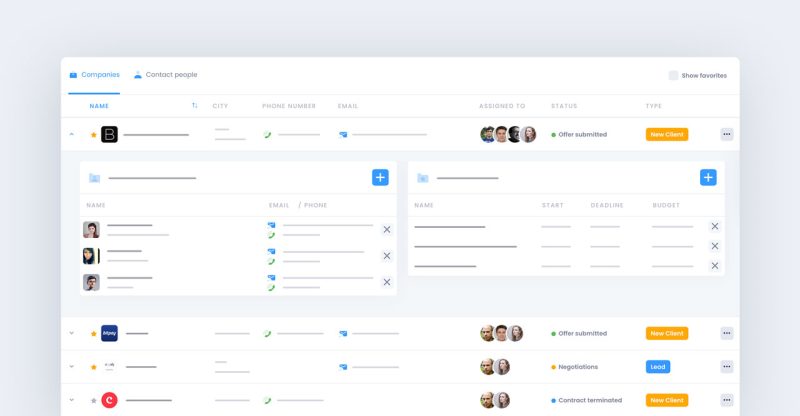Organizations across industries build relationships with potential employees, suppliers, and partners every day. They negotiate, sign, and execute various types of contracts. After all, in today’s world, no business operates in limbo and it needs support from other entities. Therefore, contract management has become one of the key processes in most companies and public institutions. In today’s post, we will explain what contract management is and what benefits it may bring to your business. Read on to find out more.
Effective contract management – table of contents:
What is contract management?
Contract management is the process of planning, negotiating, signing, executing, and monitoring various types of contracts whose job is to build relationships with customers, suppliers, employees, or business partners. The purpose of this process, which may be carried out by a single employee or an entire department, depending on the size of the organization, is to ensure that all contracts are executed effectively and in accordance with their terms. It starts with identifying the organization’s needs, selecting suppliers, and defining the terms of the agreement, and ends with evaluating the progress of the contract, and, if necessary, taking steps to resolve any issues that arise.
Benefits of contract management
Contract management helps the organization achieve its business objectives. However, this is not the only benefit associated with a carefully developed contract management strategy. The process also helps:
- Mitigate risk – adding confidentiality or data protection provisions may greatly reduce risk for businesses,
- Optimize costs – organizations can significantly lower the cost of services and supplies by carefully analyzing and negotiating the terms and conditions of signed contracts,
- Increase operational efficiency – businesses may considerably improve their productivity by monitoring and evaluating the performance of suppliers and business partners based on the terms of signed contracts,
- Build strong relationships with stakeholders – meeting deadlines and fulfilling the terms of the contract has a positive impact on relations with employees, partners, or suppliers,
- Protect a company’s interests – drafting contracts in compliance with applicable laws and regulations protects companies from potential legal consequences.
Key elements of contract management
It can bring several long-term benefits to organizations. But it won’t happen without an effective contract management strategy. Here are the three key elements of a successful contract management process:
- Establishing clear rules and procedures
- Implementing a contract management system
- Monitoring conditions and deadlines
Both small and large companies should have a contract policy that outlines the objectives, responsibilities, and procedures for planning, negotiating, signing, and executing contracts. Such a document should be clear and transparent, i.e. understandable to everyone involved. It should also be updated, for example, when problems arise in the implementation of the process or when new practices emerge in the industry.
Effective contract management requires an organization to have a central database or system where all contracts are stored, preferably categorized by type, expiration date, value, and other relevant criteria. Such centralization and categorization greatly facilitate the processes implemented within the organization.
In this case, the CRM tool available in Firmbee will be helpful, allowing you to store and organize customer and contractor data in a single, easily accessible place. The system also lets you monitor the status of contracts and create tags. What’s more, Firmbee comes with a free invoicing application for any currency, tax rate, or discount. Try Firmbee for free!
Organizations should constantly monitor the terms of signed long-term contracts and pursue opportunities to secure more favorable conditions. Renegotiations can help adapt contracts to evolving needs (e.g., as the economy changes). What’s more, it allows companies to keep a close eye on contract expiration dates, so that they can plan and act accordingly as those dates approach.

Summary
Effective contract management is critical to the operations of companies in every industry. On the one hand, it is part of the day-to-day operations of a business, and on the other hand, it is essential to the achievement of set business goals (even if not directly). In a dynamic business environment, organizations that have established an effective contract management process are able to respond to market changes swiftly, minimize existing risks, and achieve greater operational efficiency. As a result, this process is a powerful tool for building their competitive edge.
If you like our content, join our busy bees community on Facebook, Twitter, LinkedIn, Instagram, YouTube, Pinterest, TikTok.
Author: Nicole Mankin
HR manager with an excellent ability to build a positive atmosphere and create a valuable environment for employees. She loves to see the potential of talented people and mobilize them to develop.


















